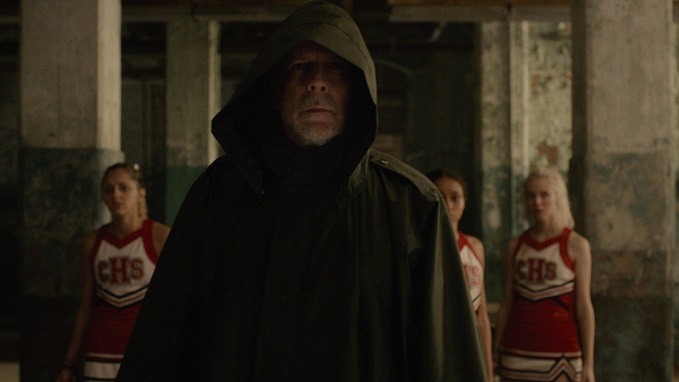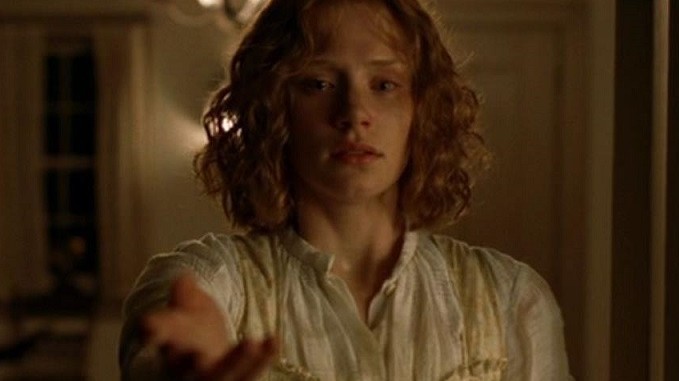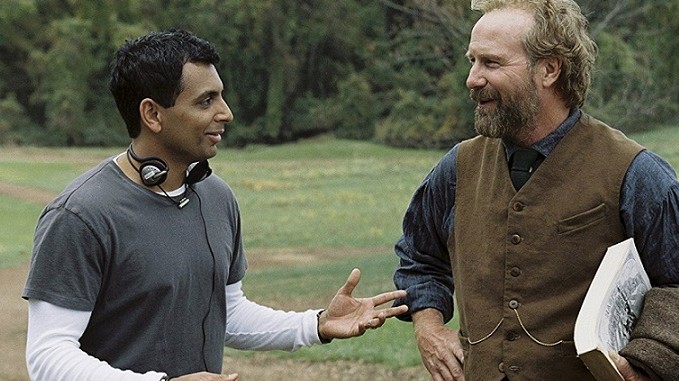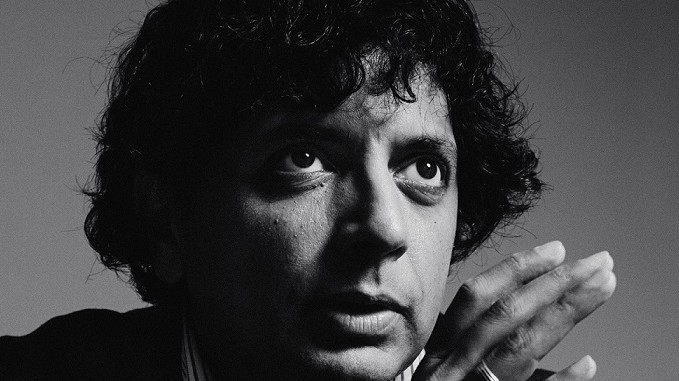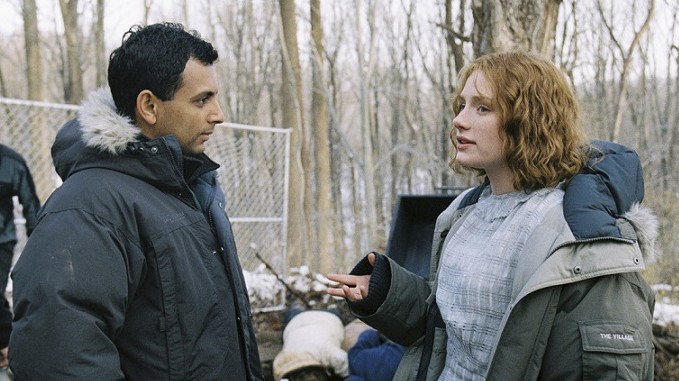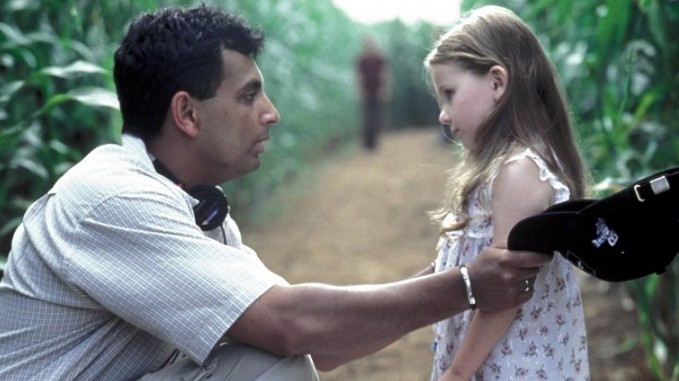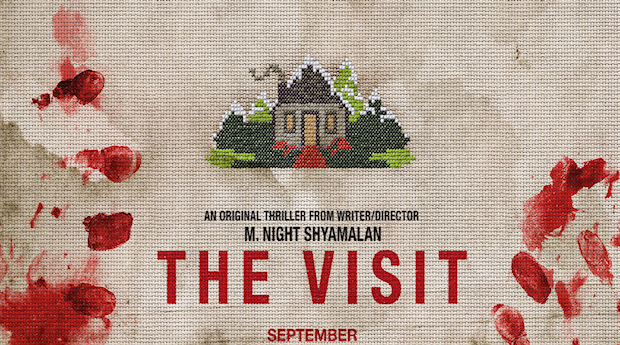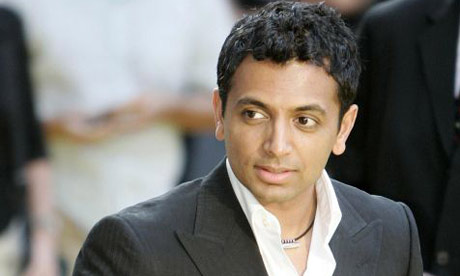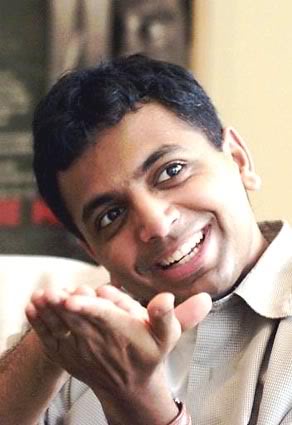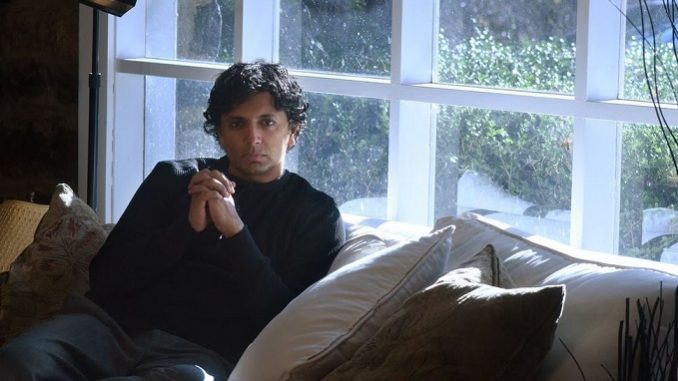
We don’t believe that M. Night Shyamalan is a director that needs defending. Some of us believe he’s had a slump and has returned from that slump. Some believe he was on fire the whole time. And some believe he’s heading back toward the slump after a short return.
But the one thing that we all agree on is that M. Night Shyamalan is a great director, that is capable of making great films, because he has in the past. We don’t believe that a director is only as good as their last film.
A bunch of us wrote responses to questions posed by the website vice.com and when the article was posted, realized that our answers weren’t just heavily edited, sometimes the context and meaning was changed. We were also surprised by the negative tone that kicked off the article.
Again, while we don’t believe Night needs defending, we can do it when asked, and it’s not hard at all.
Devon Powell, filmmaker
Is M. Night Shyamalan hard to defend him as a director (given some of the films he’s been involved with)?
I’m the first person to admit that the films that Shyamalan directed during that four-film period were somewhat disappointing (although no worse than a ton of other equally disappointing films that weren’t criticized nearly as much). Do I have trouble defending him? Why should I have to defend him? He hasn’t done anything to defend. He simply made a few films that aren’t as good as those that came before them.
Critics who assume that any director is incompetent or that they have somehow lost their magic due to a string of unsuccessful or disappointing films are betraying their ignorance. They have no sense of history. I’ll give you a few examples:
Alfred Hitchcock is now considered one of the best and most important directors in the history of the medium. However, he went through three periods in his career that were very much like the four film slump suffered by M. Night Shyamalan. The first phase occurred in the early thirties. This period followed the incredible success of a few silent films and the overwhelming triumph of “Blackmail” (1929) (which was Britain’s first full-length talking motion picture). After some minor success with his next film, he spent the early thirties in a critical and commercial slump. He then came back with a string of incredibly successful British thrillers in 1934 that brought him to the attention of Hollywood.
The second phase was in the late forties. Following the overwhelming success of “Notorious” (1946), he made a string of films that were commercial and critical failures. This string began with “The Paradine Case” (1947) and included “Rope” (1948), “Under Capricorn” (1949), and “Stage Fright” (1950). He came back swinging with “Strangers on a Train” (1951), and he would soon begin what many believe to be his most creatively rich period a short time later.
The third period was his late sixties period. “Marnie” (1964) was slaughtered by critics and audiences as was “Torn Curtain (1966) and “Topaz” (1969). However, the success of “Frenzy” (1973) proved that he didn’t lose his touch. If M. Night continues making films, future slumps are inevitable. What’s more, we don’t know what the future has to say about some of these “failures.” There are many who consider “Rope” an important classic in retrospect. What will scholars be saying about “Lady in the Water” in fifty years? We don’t know.
Should I go into Martin Scorsese’s career now? Billy Wilder’s? There are countless examples in the back pages of history. It is time for critics to get themselves a new gimmick, because the “Can Shyamalan redeem himself” angle is skewed.
What was the first film to turn you onto his work?
I first discovered M. Night Shyamalan’s work in my childhood. I was upset about something, and I had a couple of college-aged friends who took me to the cinema to cheer me up. The film that we saw was “The Sixth Sense.” It was a packed audience and there was this palpable feeling in the air. Everyone was spellbound. When that final revelation came at the end of the film, everyone took a collective gasp at the EXACT SAME MOMENT. That is so incredibly rare, and you can’t replicate it in the home environment. I feel bad for those who missed out on the theatrical experience.
Which one is your favorite?
My favorite M. Night Shyamalan film is a tie between “The Sixth Sense” and “Unbreakable.” I like them both for incredibly different reasons. There is a lot going on thematically in “Unbreakable.” It’s an incredibly rich film.
Dag Sødtholt, Film Critic
Is he hard to defend him as a director (given some of the film’s he’s been involved in, including Avatar)?
It is not hard at all. Many critics seem to only have a superficial understanding of his films, so like Shyamalan himself, I tend to ignore them. He is at his best left to his own devices, but even the compromised works when he did big studio films without final cut from 2008 to 2013 have many good passages, including “The Last Airbender” with its monumental climax. His best films, however, are the ones from 1999 to 2004, four contemplative, methodical, often bleak mood pieces, remarkable hybrids between Hollywood entertainments and European art films. I have studied virtually all of his films in detail as a personal project and written numerous articles on them here.
What was the first film to turn you onto his work?
It was his 2004 film “The Village” because of its visual beauty, intense melodrama, and lyrical, pastoral setting, with some electrifying horror film moments thrown into the mix.
Which one is your favourite?
“The Village”, closely followed by “The Sixth Sense” and “Unbreakable”, although his recent “The Visit” from 2015 is terrific with its bizarre blend of youthful humour and mental illness – his most audacious film.
And what did you think about ‘Glass?’
I have seen it three times already and have written this piece on it. Possibly not as good as “Unbreakable” and “Split,” I think “Glass” is well-acted, narratively complex and beautifully structured, both within the film and in dialogue with the earlier works of the trilogy (something I write about in detail in my article).
Gustav Roman, Teacher
What was the first film by Shyamalan to turn you onto his work?
The first Shyamalan film I saw was “The Village” (2004). It came out around the time I was just starting to get into films, and I remember leaving the theatre completely consumed by all the implications and questions it posed. I was also just so engrossed by the rich texture of the story and its many harrowing sequences. I eventually explored the rest of his filmography, and I was taken by the eerie whimsey and extraordinary empathy of his films.
Which one of his films is your favorite?
It would have to be “The Village”, not only for nostalgic reasons; I think it’s truly a masterpiece. I recently re-watched it and I think that it remains one of the most affecting and unsettling films of this century. Shyamalan’s work is often de-politicized by critics, which I think is a fatal flaw to trying to understand his work. “The Village” is one of the most compelling, understated and impactful works to emerge from the post-9/11 fallout. I think that the film does an incredible job unearthing the ways in which insularity, fear, and creating the “other” are deeply embedded in the American tradition. In choosing to make it a period piece, I think Shyamalan further complicates and enriches these questions. Not to mention, it’s a beautiful love story and a searing exploration of grief. I teach English language arts to high schoolers, and I want to incorporate this film into a course on American literature.
Is it hard to defend Shyamalan today as a director?
Not at all. I think he’s one of the most interesting and wonderfully idiosyncratic writers/directors working today. I don’t necessarily think his films need to be “defended” or even explained. But I think his films should simply be watched and thoughtfully considered—which is something that I’ve rarely seen critics of his work ever do.
I’ve been following his career and the criticisms around his work for a while. I must say, I’ve never seen more arrogance, disrespect, or exhaustion in the complete, undeserved dismissal of an artist and the artist’s work. I think film criticism can be an echo chamber full of inconsistencies and careless insults. I think a good case in point is how “The Visit (2015) and “Split” (2017) were met with praise that said “Shyamalan’s back” yet “Glass” (2019) has been met with comments calling it “the worst film of his career” and saying that “He hasn’t made a good film since 1999”—mind you, some of these reviews are even coming from critics who liked “Split” and “The Visit”. I think there’s much more of a divide between critics and audiences now, which perhaps wasn’t as prominent when some of Shyamalan’s most criticized works were released (mainly from 2004-2013). Everyone I’ve talked to really enjoyed “Glass”, many of whom have been puzzled by or indifferent to its critical reception. I think it shows that audiences are really thinking for themselves beyond the narratives around Shyamalan that have been put out there. I think that so long as people view his films with an open mind, they will be surprised by how compelling and artful his films are.
What did you think of “Glass?”
I loved it. As of now, it’s probably my second favorite film of his. It was everything I could have asked for in a finale to the trilogy. I was stunned by the ending, but on second watch it become clearer to me that this was everything that “Unbreakable” (2000) and “Split” were building to. The film is absorbing, massively entertaining, and possibly Shyamalan’s most idiosyncratic film yet—it’s also a deeply empathetic film, which I found especially important given its central themes of trauma, identity, and belief. I found it profoundly affecting and inspiring. I hope to return to it many more times.
Rohan Mohmand, Script Writer
What was it about Shyamalan that made you fall in love with his work?
I was still in High School when someone handed me the VHS tape of “Praying With Anger,” one of his earlier films. What enticed me about the film was the amount of attention as a writer and director that he put into the story and characters. It’s such an interesting, dark little film that’s also quite innocuous. There was a sense of freshness in the pacing of the film and as well as in the trick of dealing with mystery. There are many directors who tackle mystery, but only well-focused directors can utilize and make something cogent out of it. And Shyamalan is one of those directors.
Before I was introduced to the work of Shyamalan, thanks to my father, I was watching the crime films by Scorsese, Mann and the westerns by Eastwood and Leone. As an aficionado of cinema, during my high school years I wanted to be an actor. But I was also interested in characters and story. I had tons of ideas, but didn’t dare to write until I checked out Shyamalan’s ‘Unbreakable’ from the public library one Saturday.
The opening scene of the film is probably one of the best things that has ever happened to cinema. It takes place in a fitting room in a department store. We see Elijah is born and the doctor has to give his mother the bad news. It’s not just the acting, but the camera work and tension it helps increase second by second. Shyamalan puts the camera on the mother’s face for long as she tears up, and the scene fades to black with James Newton Howard’s score playing in the background. This is the moment that made me a Shyamalan fan, because he helped me realize that you need cinematic vision and a point-of-view. Thanks to M. Night, I’m working on two scripts that I hope to sell soon.
When it comes to the critics and some of the films Shyamalan drew criticism for, do you find it difficult to defend his talent?
Shyamalan is the one, who helped me decipher the code of cinema. I started to view films as something beyond just the entertainment after “Unbreakable.” Watching films is about understanding the message of the filmmaker and learning something new. Shyamalan is a very talented artist and there’s nothing hard about defending that kind of talent. Today, we live in the era of blockbusters. That means less original, good films are seen on the big screens. That doesn’t mean I’m against blockbusters. They can be effective, though to an extent. But in the long run I think it’s always going to be about filmmakers like Shyamalan, who deliver original material.
What are your thoughts about “Glass?”
“Glass” is the first superhero and super-villain related film since “Unbreakable” and “The Dark Knight” that is grounded, smart and really good. The amount of criticism the film has received is unfair. It’s either that the critics don’t understand the filmmaker or it’s just they are being completely ignorant. Shyamalan never had the intention to make a film that looked like something from Marvel. The third act of “Glass” is everything. It’s the moment we were all waiting for. It’s the finale Shyamalan has been preparing for some time.
Paul Martin, Founder of M. Night Fans, Fan since 1999.
What is it like to be a fan when so many “outside forces” see his work as disappointing?
For me, it’s similar to being outcast for being different. Made a pariah for enjoying something. The thing that gets me through the sometimes largely misdirected vitriol is the simple fact that no two people agree 100% of the time on every movie. And if I am at home, and I want to watch a film by M. Night Shyamalan, it’s not something that the random person on the internet is being subjected to, and why should they really care?
The same thing is happening in other franchises that I happen to enjoy immensely: “Ghostbusters” and “Star Wars.” Both of those have small, but very loud, portions of the community that didn’t like one or more of the recently released films in their respective series. And now there’s a new film coming in the “Ghostbusters” realm, and the same people that asked for a sequel to the original two “Ghostbusters” films, and are now getting that film, are now saying “I don’t think I want this either.” Same thing happened with “Star Wars.” The Force Awakens had echoes of stories that happened in the original trilogy, and set up some interesting questions to be answered in further stories. All of the questions weren’t answered in the second act of the three act story, and it appeared that many fans were practically a mob. Most are simply repeating the same arguments that other people have made to tear down The Last Jedi. They are discounting many of the cool things that happened in The Last Jedi… sometimes missing out on how director Rian Johnson continued the journey director J.J. Abrams started and is now finishing… probably for fear of not “fitting in” with friends that didn’t like it… I’m certain that peer pressure has victims here.
I could go on for a while about the psychology of fans of anything, and the way that the internet casts a shadow over something so thoroughly that you even feel the need to write this article. The simple fact is that the “outside forces” are all on the internet, rarely in person, except in social circles among friends that enjoy debating movies with each other (but my friends and I often do so with respect, because we understand that we have different tastes).
This story will make sense when you get to the end of it: I was out to dinner once with a group of people, and I mentioned a movie that had come out, and that I had enjoyed it. Someone at the table said “my friend said that it wasn’t that good, so I’m not going to see it.” I asked him “does your friend make all of your decisions about what movies you watch?”
So, let’s circle back to M. Night Shyamalan: Is he easy to defend?
Yes. He’s an artist. An artist that has been put through the wringer. With “Wide Awake,” he wasn’t given final cut on the film by Miramax. He went to Weinstein who basically told him, no. I believe the next few movies he made, he had the ability to make the final cut the way he wanted, without the studio intervening. However, the audience he was talking to from movie to movie tended to be different, but sometimes the marketing department didn’t understand that, and would target fans of, say, “The Sixth Sense” or “Unbreakable.” I wouldn’t say those films would both be enjoyed entirely by the same audience. There’s a good mix in a Venn diagram, but not as much as the marketers thought. That happened constantly in marketing his films, and I feel like that had a majorly negative impact on the reaction to his movies. The wrong audience was seeing the wrong films. It’d be like doing a test screening of “The Matrix” with a room full of people that only watch Lifetime movies. Sometimes the target market is just not correct, and some movies are just difficult to market to the right audience.
I love his films because they always have something deeper in them. You can keep unpacking and find more and more. I think, sometimes, Shyamalan reacted to the audience and would shift how he was writing a film based on their reactions. I think he cares very deeply what people think of his work, and it has an affect on him, in the same way that we, as an audience, can have an affect on each others’ opinions about him.
I think what it really comes down to is this: most artists have their fans, and most artists have people that don’t care for their work. Not every work of art by an artists is loved by even their most loyal fans, and that’s okay. Let the artists do their art, and if someone that hasn’t liked everything the artist has made up until this one piece, then so be it.
One other thing to note, that is impressive about M. Night, is that Night put his own money into his last three films, including putting his house up for collateral on the loan to get “Glass” made. Respect for that! It was a huge risk, but a well calculated one.
Someone recently suggested that M. Night hire a writer for his screenplays, and he focus on directing, because he’s very good at directing. I know we’ve seen that at least once in Night’s career, and I had that same thought before as well. But here’s the deal. Night has ideas that he wants to get across. Everything he writes into his scripts is from his mind, and you can tell. That other person would need to be on the same wavelength as Night, understand the idea thoroughly, and perhaps collaborate with Night so well, that they would be a co-writer. I could see an extra set of eyes on the script, like Carrie Fisher was on Rian Johnson’s script for The Last Jedi. She was a script-doctor, after all. I can see the pros and cons to this, and I don’t have a good answer to it. Could it work? Sure, some parts of each of Night’s films could use a little bit of smoothing out. Let’s just make sure we don’t lose the heart of what makes his movies his, rather than someone else’s voice.
What did you think of “Glass?”
I liked it well enough. I think there could be a sequel to this film, if it is like a true comic book series. I don’t want to spoil anything about the movie, so in the interest of keeping the experience fresh for other people, I’ll say this: there were parts of it that I loved, and parts that I found troubling. I didn’t mind the score, and remember really liking it. I’m looking forward to seeing the movie again, to look for clues about the reveal at the end of the movie. Thinking back to what happened throughout the film, it makes sense, but I want to see just how much it was layered into the story. It’s also interesting to note that each film in this trilogy can stand alone from each other. You don’t need prior knowledge to understand each film, but each prior film can enrich the experience of the next.
Adrian Pennington, Playwright
What was the first film by Shyamalan to turn you onto his work?
As with most people it was probably “The Sixth Sense”. I remember my parents going to see it at the cinema and coming back really enthusiastic by it. I only got to see it later, when it was released on video. At the time it was the film everyone was talking about. I remember other kids at school endlessly quoting the line “I see dead people”, which had been used extensively in trailers. I think even at a young age I was already a bit cynical towards the kind of hype being generated and approached the film with a bit of a negative attitude. However, it won me over immediately From the first scene. The atmosphere of the film is incredibly persuasive. It draws you in. I think someone at school had already spoiled the twist for me, but it didn’t matter. The sense of mystery and the relationships between the central characters were both strong enough that it was easy to just go along with the story. Everything about the film, from the performances to the visual direction, suggested the work of a great new filmmaker; one with their own style and voice.
Which one of his films is your favorite?
There are several films by Shyamalan that are among my list of personal favourites (The Sixth Sense, Unbreakable, Lady in the Water, The Visit and Split are all contenders), but my absolute favourite has to be “The Village.” Bryce Dallas Howard gives a star-making performance here and I don’t think she’s ever been better on-screen; even when working with more acclaimed filmmakers, such as Lars von Trier, Kenneth Branagh, Joe Wright, Clint Eastwood, etc. It’s interesting also that Shyamalan chose to elevate a young woman to the role of hero long before the popularity of Young Adult stories, like “The Hunger Games,” “Divergent” and “The Host,” while also focusing on the positive portrayal of a character living with a disability; something that saw later films, such as “Avatar,” “Hush” and “The Shape of Water,” acclaimed as bold and even daring. However, it’s the political aspect that really defines “The Village;” its microcosm of American isolationism. “The Village” is a film that made sense when it was released at the height of the Bush administration (where its themes resonated with post-9/11 anxieties), but I think it makes even more sense when looked at in the context of Donald Trump. For me, “The Village” is the defining film about America under the presidency of Trump; this story of an actual billionaire looking to an idea of the past as representative of the values that made the country great; who builds a literal wall around his community to keep the “bad” people out; who uses fear-mongering and manipulation (literally fake news) to control the populace; in doing so, dooming the younger generation to a future where life becomes difficult, and the struggles faced are often damaging to their health and mental well-being. In this context, “The Village” is a terrifying and prescient work.
Is it hard to defend Shyamalan today as a director?
I think the word “defend” is contentious in this particular context. For me there isn’t anything to defend. Shyamalan isn’t Roman Polanski or Victor Salva. He’s not a criminal. He’s not even a bully, like Kubrick or Fassbinder. His only supposed indiscretion is that he’s made films that disappointed some members of his audience. I don’t see this as something that needs to be defended; not when we have a culture where directors have been accused of genuine abuse. Shyamalan has made some films that audiences loved and some films that audiences hated. This makes him no different to the vast majority of filmmakers throughout history. One can acclaim Sidney Lumet for films such as “12 Angry Men,” “Dog Day Afternoon” and “Network” without mocking him for “The Wiz,” “Garbo Talks” or “Gloria.”
One can acclaim Alan J. Pakula for the great run of films he made in the 1970s with Klute, “The Parallax View” and “All the President’s Men,” without acknowledging that his later films failed to connect with audiences and critics (See You in the Morning, Consenting Adults, The Devil’s Own). Directors as varied as William Friedkin, Otto Preminger, John Boorman, John Frankenheimer, John Schlesinger, Richard Lester, Francis Ford Coppola, Elaine May, Michael Cimino, Karyn Kusama and many others have each made at least one great masterpiece that has endured as an iconic work of 20th century cinema, but they also made films that are generally considered to be among the “very worst ever made.” The legacy of those filmmakers is not diminished by their failures, which are inconsequential. Filmmaking is a process. If a film fails, then so what? Learn from it and move on to the next one. If audiences genuinely haven’t enjoyed one of Shyamalan’s films since “The Sixth Sense” but are still somehow obliged to keep watching them in the hope that he’ll suddenly stop making films that reflect his own style and personality, then the problem is on them, not him.
If you have seen “GLASS,” did you like it?
I did. For me, “Glass” was the perfect end to a trilogy that began nineteen years ago with “Unbreakable” and continued more recently with “Split.” Not “perfect” in the sense of it being a perfect film (I don’t think it’s as startling as Unbreakable, nor as powerful as Split) but “perfect” in how it brings to a close the various themes that run throughout both the trilogy and Shyamalan’s career as a whole. It’s another film about grief and overcoming trauma; about secret societies and people bound together through experience; about extraordinary people and ordinary people that rise to extraordinary levels when the situation calls for it; about forgiveness as an act of faith. It’s a hopeful film that recognizes real evil as a banal (possibly corporate) thing and one of Shyamalan’s most daring (even experimental) deconstructions of genre. In this sense, I thought it was excellent.

